Can Tree Roots Go Down and Back Up Again
Nearly every tree or bush that is produced in a nursery using modern production methods leaves the nursery with destroyed chief roots (taproots). This is caused by the fact that the taproot has not enough infinite in a pot or plastic bag to grow vertically downwards.
When the taproot grows downwards and reaches the bottom of a pot or a plastic bag, he starts to abound in horizontal circles or even back to the top. Once yous plant such a plant in dry areas, the primary root is not capable of penetrating deeply into the soil to find water.
On this page, you will discover all the information nigh how you can recover the taproots, making information technology possible for your plants to grow in dry out areas with the aid of the Groasis Waterboxx® constitute cocoon and without any demand for irrigation.
Destroyed taproots and the consequences
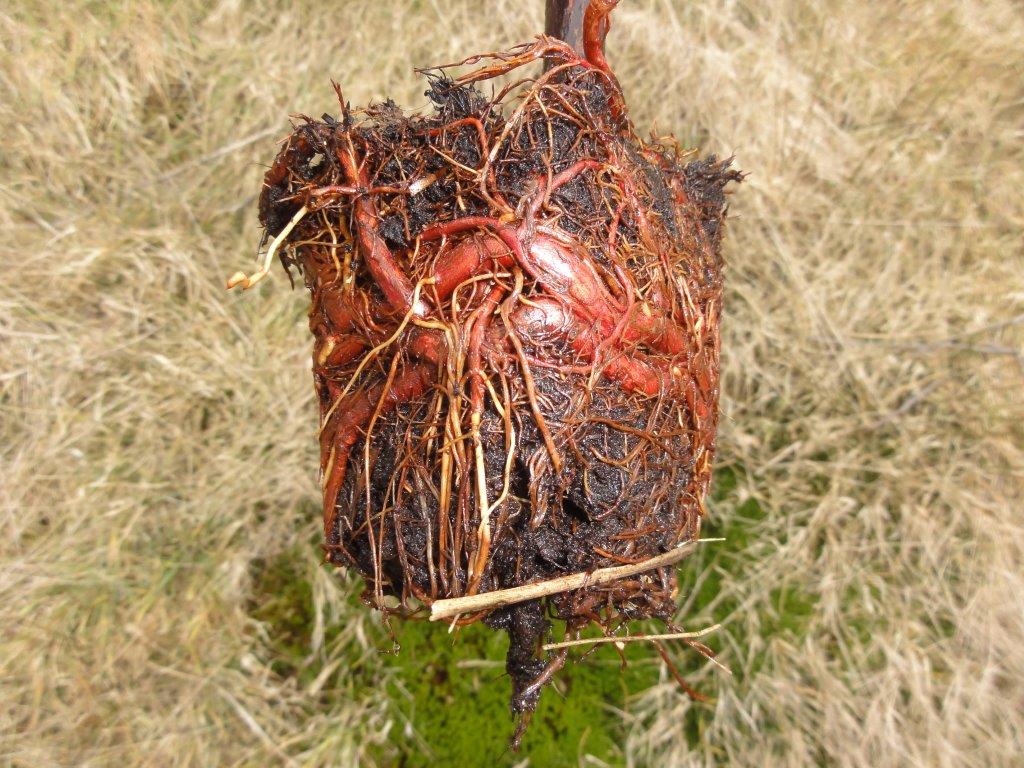
Taxodium distichum sapling with round growing destroyed primary root
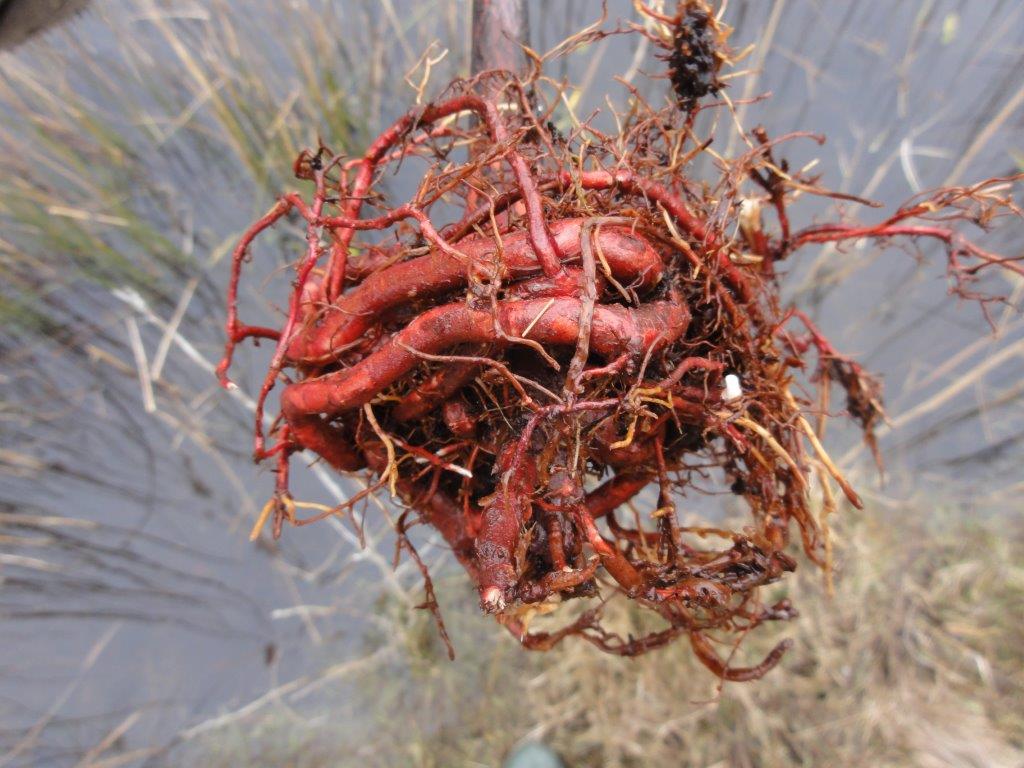
Detail of destroyed circular growing primary root of Taxodium distichum sapling
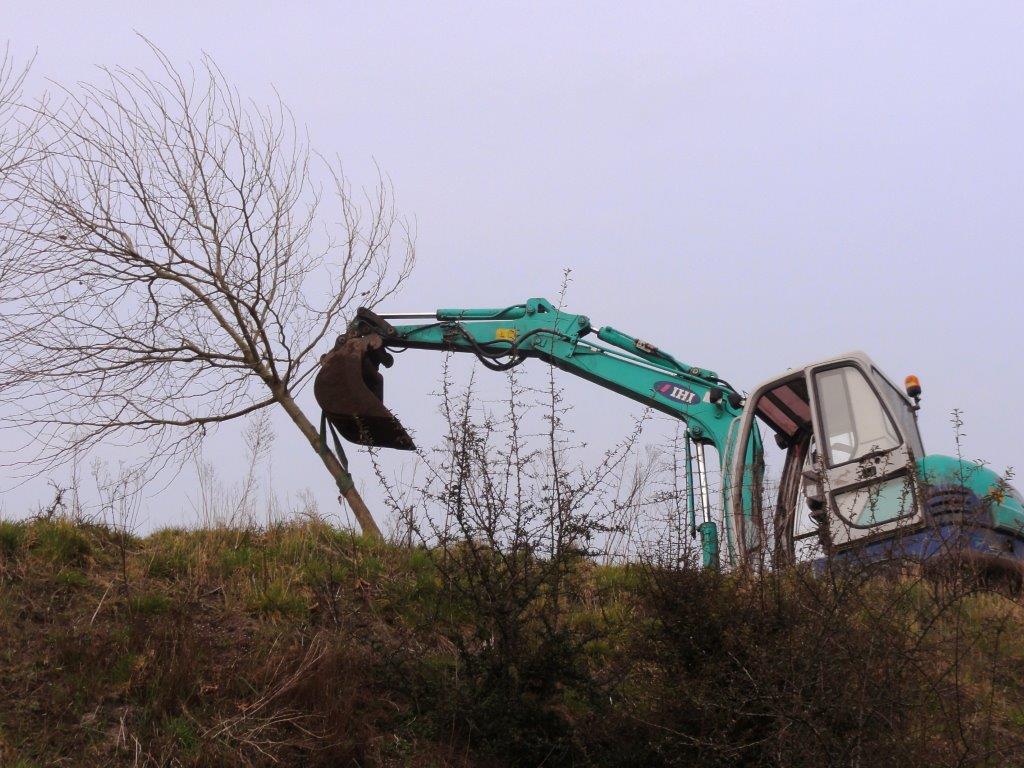
Platanus occidentalis in Hortus Zodiacus botanical garden Holland, blown over past the wind half dozen years subsequently planting
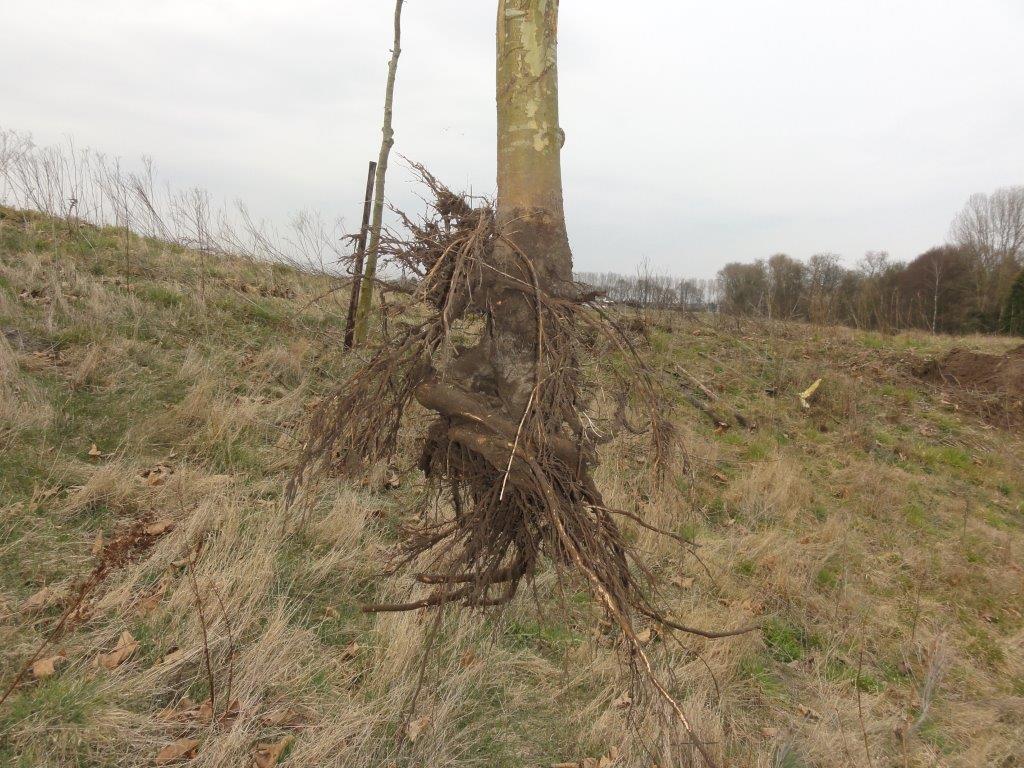
Not recovered, twisted instead of vertically downwards growing main root of Platanus occidentalis 6 years after planting
The photos in a higher place show you what the consequences are when trees are grown in pots/plastic numberless and when they start to abound in horizontal circles. The photos show that when a taproot outset to grow in a horizontal circle, he volition never abound vertically downwardly. Non even later on years.
This ways that a taproot that is growing horizontally, volition never grow automatically vertical. The result of this is that a taproot isn't able to grow vertically downwards to search for h2o deep in the footing. A tree with a destroyed circular growing primary root isn't able to abound in areas without the use of irrigation.
How to recover destroyed taproots

Information technology is easy to repair a taproot. Cut the horizontal part off.
The importance of the primary root for trees
The principal way of Mother Nature to reproduce and multiply is by sowing seeds on top of the soil. The seeds are commonly transported and deposited on peak of the soil by ways of the air current or through the excrement of animals. The seed then starts to develop its primary root in order to find water, thereby establishing itself. Once the principal root has found h2o, the establish starts to develop secondary roots, and then starts to grow and evaporate.

Mother Nature'due south planting technique in iv stages on 1 photo. Equally yous can see, the taproot is growing vertically downwards.
How can I have care of good taproots?
Plants sold today, multiplied with modern production methods, are produced with deficient primary roots. The plants are grown in such a style that the master root is touching the lesser of the pot or plastic bag in which it is produced, and and so starts to grow in horizontal circles, grows up once again or splits into secondary roots. In recent years, Groasis bought and photographed plants in over 20 countries, and wasn't able to find a unmarried constitute among them with a perfectly downward growing primary root. All purchased plants turned out to take destroyed principal roots and over-developed secondary roots. Plants with such roots are utterly unable to survive dry periods or dry soil without the help of irrigation. Moreover, secondary roots are non able to penetrate deeply into the soil or pause rocks.
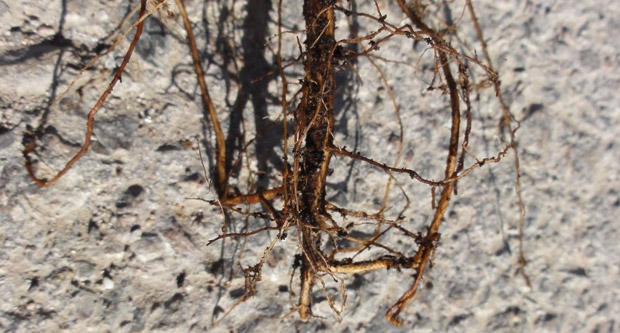
Destroyed, split and upward growing master root grown in plugs in Spain
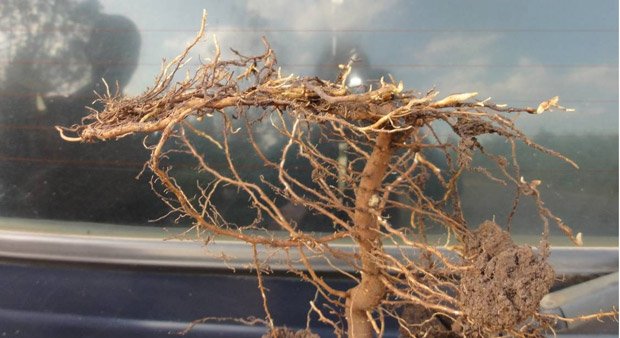
Destroyed, split and horizontal growing primary roots grown in plastic bags in Kenya
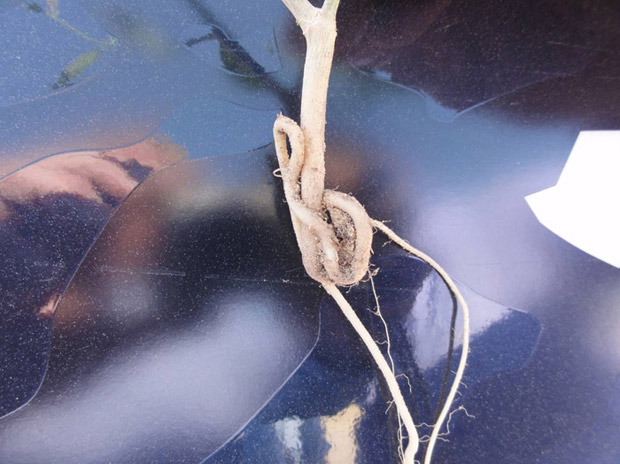
A young plant in Dubai (before transplanting into its second pot) has a destroyed, twisted main root.
Subsequently having been transplanted to the second pot, ii smaller and thinner roots have
developed, but they lack the power of the original primary root.
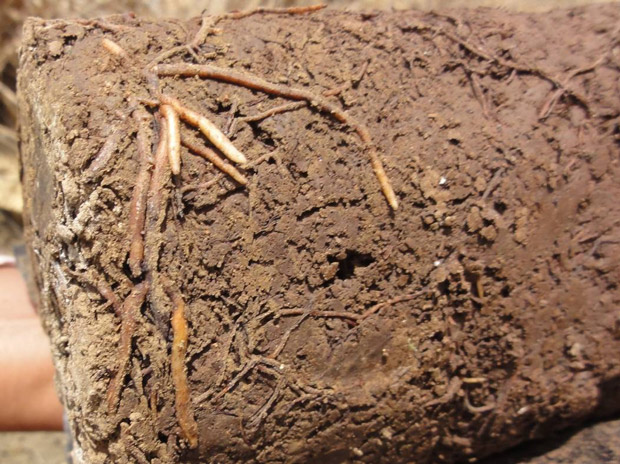
Rounded and twisted growing primary root
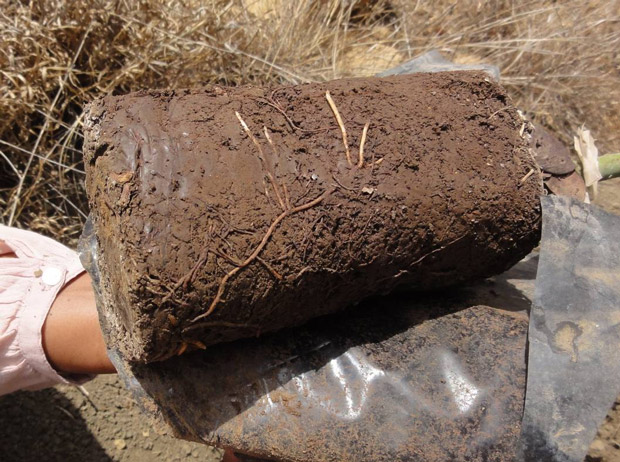
Up (!) growing primary root
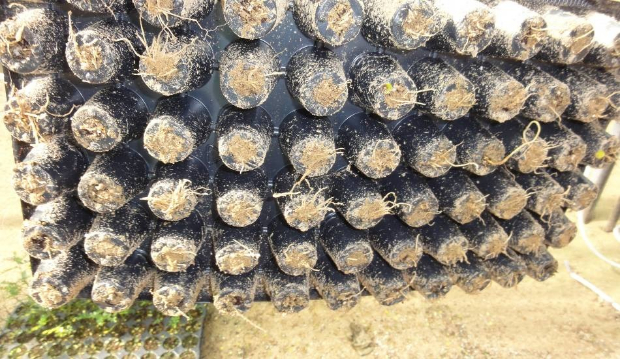
All primary roots are destroyed and abound horizontally under the plugs. These plug plants are
transplanted to bigger pots but as you can see, the primary root which is supposed to abound vertically
downward is already destroyed, and is growing horizontally instead.
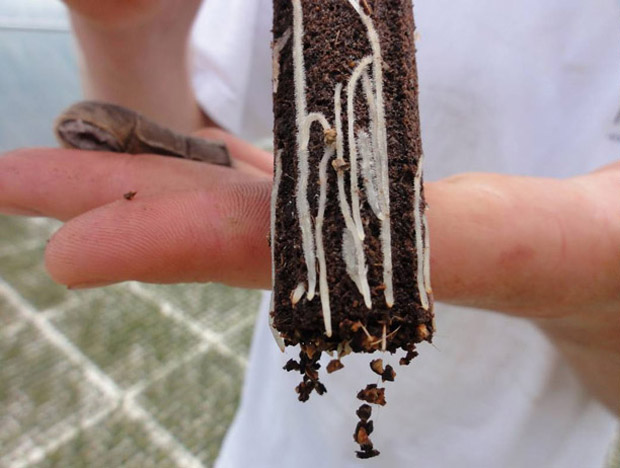
This is what perfect master roots in a plug wait similar: down growing and white
How to recover destroyed primary roots from older plants with trees and bushes
In recent years Groasis non only learned to produce plants with perfect roots. Nosotros have also learned how to repair plants with destroyed main roots. The secret to recovery is to prune the horizontally or upwardly growing parts of the primary root. After pruning, the master root resprouts and this newly sprouted principal root is growing vertically downward again. The root is now capable of penetrating dry out soil or rocks.
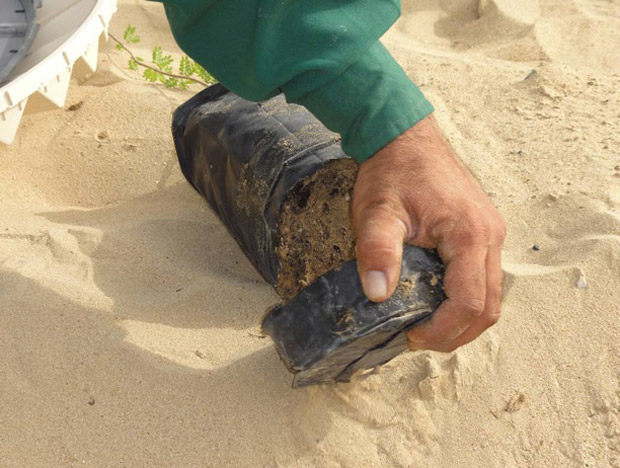
This is how you remove the destroyed office of the main root
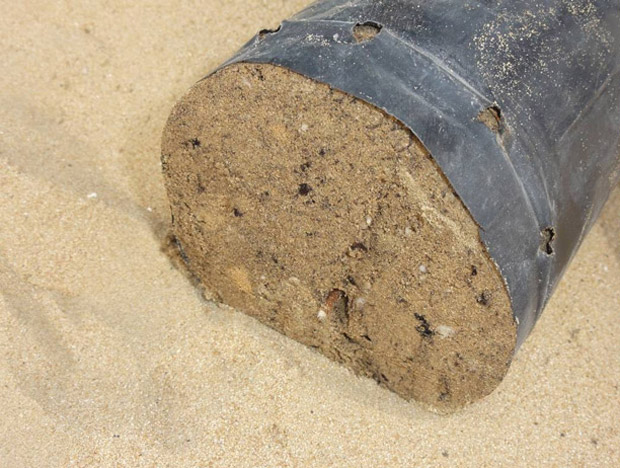
This is how you create a vertically downwards growing primary root
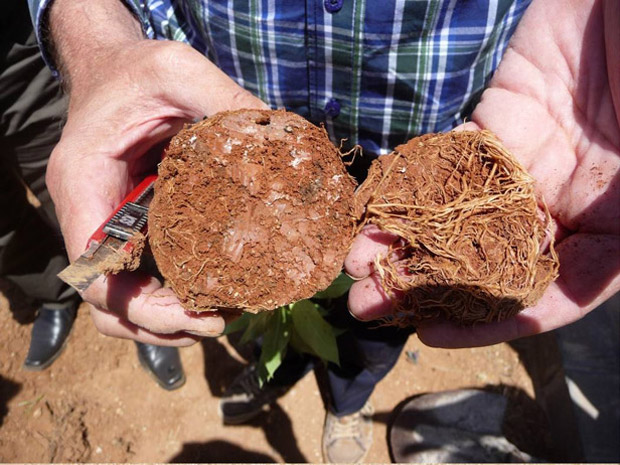
These are the horizontal growing principal roots that you have removed
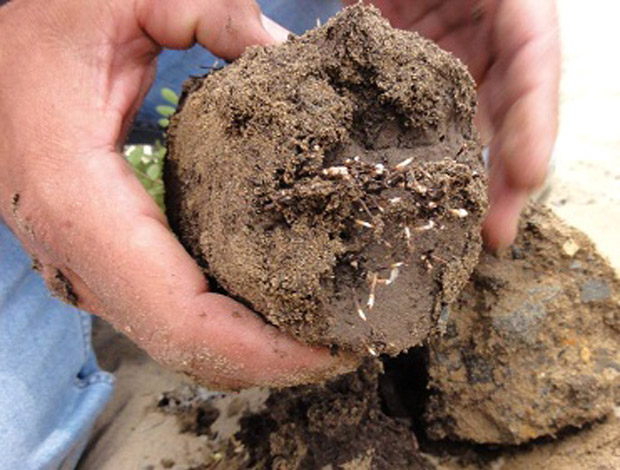
Three months afterward pruning, new, vertically downwards growing primary roots have developed
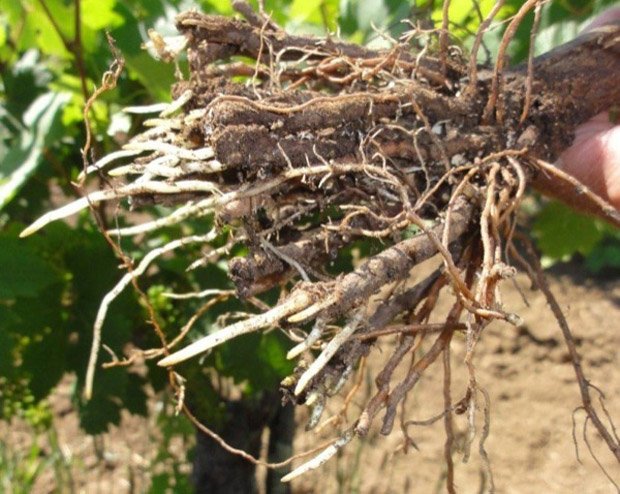
Four months after planting: recovered vertically downwardly growing primary roots
Which quality requirements are in that location?
There are several quality requirements young trees when planting must see before yous start planting. Below are they showing
- (Northern Hemisphere) Stem Diameter - x cm peak of the planting flow October to March: 5 mm;
- (Northern Hemisphere) Stem Diameter - 10 cm elevation of the planting period April to September: 8 mm;
- (Southern Hemisphere) Stalk Bore - 10 cm height of the planting period April to September: 5 mm;
- (Southern Hemisphere) Stalk Diameter - x cm pinnacle of the planting period October to March: eight mm;
- The stem has to exist woody, not 'meaty';
- A maximum length of 20 cm is sufficient. If the plants are college, they are pruned back to 20 cm;
- The taproot has to grow vertically downwards;
- The root must exist white;
- The plants must exist in the nursery for at to the lowest degree two months hardened in full sunlight.
More than information
You can notice extended videos and photos about this subject here:
Source: https://www.groasis.com/en/planting/how-to-create-the-perfect-tree
0 Response to "Can Tree Roots Go Down and Back Up Again"
Post a Comment